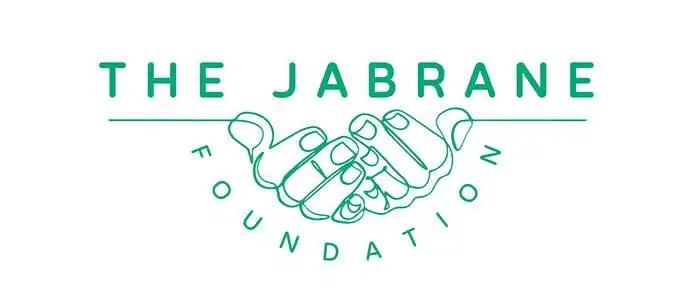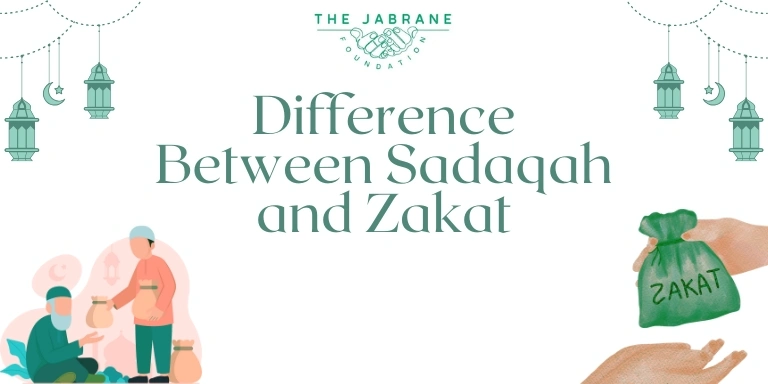Charity is an essential part of Islam, encouraging Muslims to help those in need. Among the different forms of charity, Sadaqah and Zakat hold significant importance. While both involve giving to the less fortunate, they have distinct rules and purposes. Understanding the difference between Sadaqah and Zakat can help Muslims fulfill their religious duties correctly and contribute to the well-being of society. In this article, we will explore what Sadaqah and Zakat are, their differences, and why giving charity is crucial.
What is Sadaqah?
Meaning
Sadaqah refers to voluntary charity given by Muslims to seek Allah’s blessings and purify their wealth. Unlike Zakat, there is no fixed amount or obligation to give Sadaqah. It can be given at any time, in any form, and to anyone in need. Sadaqah is not just about money; it is any good deed done sincerely for Allah’s sake. Even a simple smile to someone is considered Sadaqah.
Types of Sadaqah
- Monetary Sadaqah : Giving money to the poor, helping an orphan, or supporting a charitable cause. Monetary donations help people fulfill their basic needs, including food, shelter, and medical aid.
- Sadaqah Jariyah :Acts of charity that continue to benefit people over time, such as building a well, mosque, or school. This type of charity ensures that the donor receives continuous rewards even after their death.
- Non-Monetary Sadaqah: Kind words, a smile, removing a harmful object from the road, or helping someone in need. Even sharing knowledge or making dua for someone is considered an act of Sadaqah.
The Benefits of giving Sadaqah in Islam
Who Can Give Sadaqah?
Anyone can give Sadaqah, regardless of their financial status. Even a small act of kindness counts as Sadaqah in Islam. A person can give Sadaqah on behalf of deceased family members, as it benefits both the giver and the deceased.
What is Zakat?
Definition
Zakat is an obligatory form of charity that every eligible Muslim must give. It is one of the Five Pillars of Islam and serves as a means of wealth purification. Zakat is calculated as 2.5% of a person’s savings and must be given once a year. It ensures that wealth is circulated in society and does not remain concentrated in the hands of a few.
Why Zakat is Obligatory
Unlike Sadaqah, which is voluntary, Zakat is a duty upon all financially stable Muslims. The purpose of Zakat is to reduce poverty, support the needy, and ensure wealth distribution in society. By giving Zakat, Muslims acknowledge that their wealth is a blessing from Allah and must be shared with those who are less fortunate.
Eligibility Criteria
Muslims who possess wealth above a certain threshold (Nisab) for a full lunar year must pay Zakat. Nisab is equivalent to the value of 85 grams of gold or 595 grams of silver. This ensures that only those with sufficient financial stability are required to contribute, preventing undue burden on the less privileged.
Zakat Calculation
Zakat is typically 2.5% of one’s total savings, including cash, gold, silver, investments, and business profits. It is given annually to eligible recipients. Calculating Zakat accurately ensures that the right amount is distributed among those who need it the most.
Importance of Zakat in Ramadan
Key Differences Between Sadaqah and Zakat
Obligation vs. Voluntary Act
- Zakat is a mandatory religious obligation that must be fulfilled once a year.
- Sadaqah is an optional charity that can be given anytime without restrictions. Every Muslim is encouraged to give Sadaqah regularly, even in small amounts.
Fixed Percentage vs. No Fixed Amount
- Zakat requires a fixed 2.5% of savings above the Nisab.
- Sadaqah has no fixed amount; it can be as little or as much as a person wants to give.
This flexibility allows everyone to participate in charitable giving, regardless of their financial situation.
Who Can Receive?
- Zakat must be given to specific categories mentioned in the Quran, such as the poor, needy, debt-ridden, and travelers in distress.
- Sadaqah can be given to anyone, including family, friends, and even animals. This inclusivity allows for more widespread acts of kindness.
Spiritual and Social Impact
- Zakat purifies wealth, reduces inequality, and supports the economic stability of the community.
- Sadaqah strengthens social bonds, promotes kindness, and earns blessings from Allah. Sadaqah is also believed to protect a person from hardships and bring peace to their heart.
Donate to Jabrane Foundation now and be a source of hope for the needy.
Who Can Receive Sadaqah and Zakat?
Zakat Recipients:
The Quran (Surah At-Tawbah, 9:60) specifies that Zakat should be given to:
- The poor
- The needy
- Those in debt
- Travelers in distress
- New Muslims
- Those working to collect Zakat
- Those in bondage (slavery)
- Those striving in the path of Allah
Each category is carefully defined to ensure that Zakat benefits those who truly need financial assistance.
Sadaqah Recipients:
Sadaqah can be given to anyone, including non-Muslims, animals, and community projects. It is a way to spread kindness and help others selflessly. Many people use Sadaqah as a means to assist family members or friends who are struggling financially.
Common Misconceptions:
Can Sadaqah replace Zakat?
No, Sadaqah is voluntary, while Zakat is obligatory. A Muslim must pay Zakat separately and can give Sadaqah as additional charity. Fulfilling the obligation of Zakat is necessary before engaging in voluntary charity.
Is Zakat only for the poor?
No, Zakat has eight specific categories of recipients mentioned in the Quran, not just the poor. It is meant to uplift different sections of society and provide relief where needed.
Is Sadaqah only about money?
No, Sadaqah includes any good deed, such as helping someone, offering a smile, or removing harm from someone’s path. Acts of kindness and generosity are also considered Sadaqah.
How to Donate Zakat to Jabrane Foundation?
Conclusion
Sadaqah and Zakat are both powerful acts of charity in Islam, but they serve different purposes. Zakat is an obligation that ensures wealth is distributed fairly, while Sadaqah is a voluntary act that spreads kindness and generosity. By fulfilling both, Muslims can purify their wealth, support those in need, and earn immense rewards from Allah.
One of the best ways to give Zakat or Sadaqah is by donating to Jabrane Foundation, an organization dedicated to helping the underprivileged. Your contributions can change lives, provide food, shelter, and education to those in need. Give today and make a difference!


